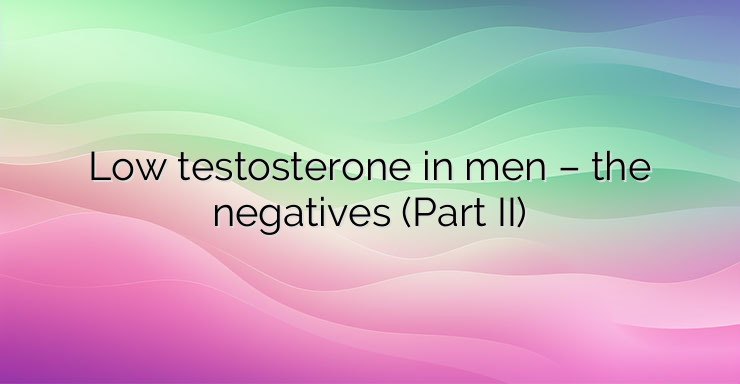Part One What Low Testosterone Leads To Surprisingly little is known about the long-term health effects of low testosterone. Low testosterone is associated with several chronic health conditions, including obesity, metabolic syndrome, diabetes, depression, and possibly cardiovascular disease in men. However, the mechanism of the disease has not yet been clarified. The same process that leads to disease causing diabetes and high blood pressure, for example, most likely also leads to low testosterone. Low testosterone can serve as an indicator of deterioration in the general state of health in a man in general. Low testosterone leads to thinning bones, osteoporosis in men. In cases of femur fractures, testosterone is found to be below normal in the affected person. However, there is still no evidence that testosterone therapy reduces the risk of fractures. Benefits and risks In the US, testosterone prescriptions have jumped 17% in recent years. On the other hand, it is reported that only 12% of men with symptomatic androgen deficiency are treated. In clinical studies, most men with low testosterone improve their erectile function and maintain their sex drive. The benefits of therapy vary widely and are different for each individual case. Contraindications Taking testosterone is contraindicated in metastatic prostate cancer or breast cancer, as testosterone stimulates the growth of the cancer. Other conditions that may worsen with therapy include sleep apnea, prostatic hypertrophy, cardiac congestion, and high red blood cells. When is testosterone prescribed? Testosterone should be taken only with a proven concentration of the hormone below the reference values for age and only at the personal choice of the patient after discussion of the proposed therapy by the specialist. Indicative of the intake is the presence of symptoms that the patient recognizes are due to low testosterone and affect his health and self-esteem.


Leave a Reply